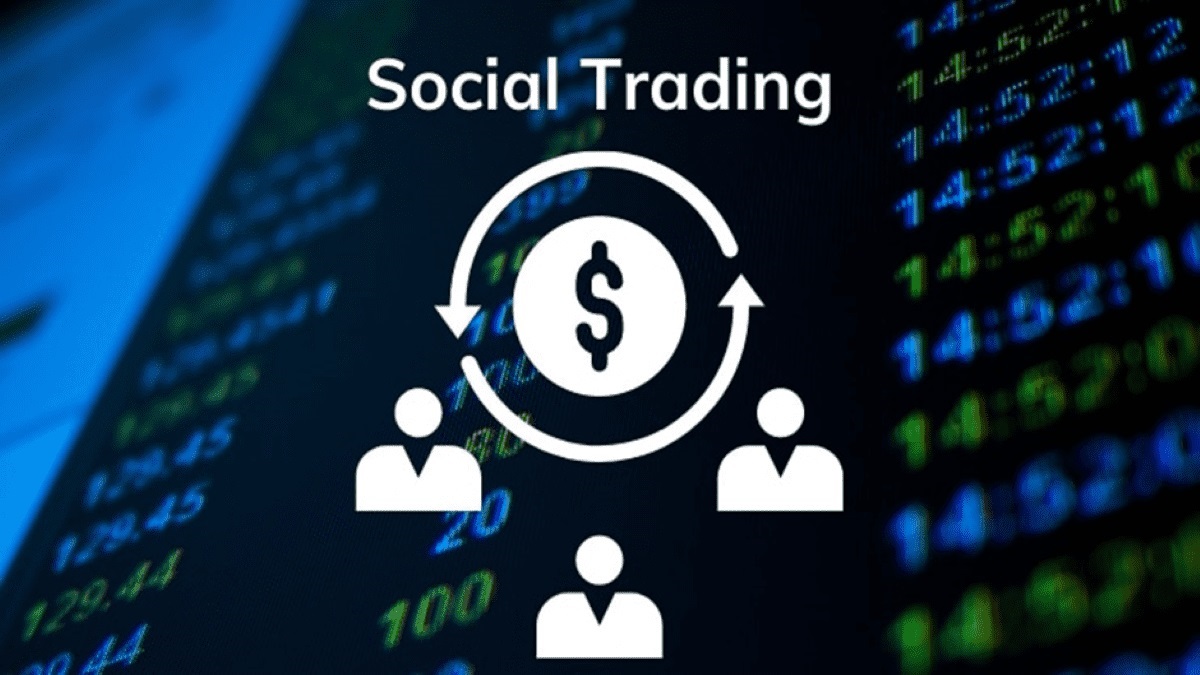Social trading platforms have revolutionized the way individuals participate in financial markets. Unlike traditional investing, social trading allows you to follow and replicate the strategies of experienced traders, even if you are a complete novice in the world of finance.
What is Social Trading?
Social trading is a groundbreaking concept that marries the world of social media with the intricacies of financial trading. At its core, it enables traders, whether novice or seasoned, to connect and collaborate within a digital trading community. Unlike traditional trading, where individuals often operate in isolation, social trading promotes interaction and the sharing of insights among its members.
Imagine having access to a global network of traders, each with their unique expertise and strategies, and being able to learn from their experiences in real-time. That’s precisely what social trading offers. It’s a platform where traders from diverse backgrounds come together to discuss market trends, share trading ideas, and even execute trades collectively.
The beauty of social trading is its inclusivity. It welcomes individuals who may have never ventured into financial markets before. For beginners, this is a golden opportunity to step into the trading arena with guidance and support. They can observe, learn, and interact with seasoned traders, absorbing knowledge that would typically take years to accumulate.
The Rise of Social Trading Platforms
In recent years, the popularity of social trading platforms has skyrocketed. These platforms act as virtual marketplaces, connecting traders and investors worldwide. What sets them apart from traditional brokerage accounts is their emphasis on community and the power of shared wisdom. Prominent platforms like eToro, ZuluTrade, and CopyTrader have paved the way for a new era in online trading.
One of the driving forces behind the surge in popularity is the democratization of finance. Social trading platforms break down the barriers that often deter individuals from entering financial markets. With just a few clicks, anyone can create an account, access a plethora of trading instruments, and connect with a diverse community of traders.
These platforms also cater to the evolving needs of modern investors. In an era where information flows incessantly, social trading platforms provide real-time updates and market insights. Traders no longer need to rely solely on traditional news sources; they can stay informed through the collective intelligence of the community.
Key Features of Social Trading Platforms
To help you better understand the essential features of social trading platforms, let’s break them down in the table below:
| Feature | Description | Benefits |
| User Profiles | Detailed trader profiles showcasing trading history, strategies, and performance. | Informed decision-making |
| Copy Trading | Automated replication of another trader’s positions, simplifying the mirroring of successful strategies. | Easy strategy replication |
| Real-time Updates | Constant access to live trading data and market insights. | Stay informed in real-time |
| Social Interaction | Chat forums, messaging, and news feeds facilitate communication among traders. | Community engagement and knowledge exchange |
This table provides a clear overview of the key features of social trading platforms and their associated benefits. In the next section, we will explore the advantages of social trading, including harnessing collective wisdom and the ease of portfolio diversification.
Benefits of Social Trading
Social trading offers a multitude of advantages that can significantly impact your trading experience. Here are some key benefits:
Harnessing Collective Wisdom
When you engage in social trading, you tap into a vast reservoir of collective knowledge. Here’s how:
- Diverse Insights: You gain access to a diverse group of traders with varying strategies and backgrounds. This diversity can provide you with a broader perspective on the markets.
- Market Sentiment: By following discussions and analyzing trader sentiments on the platform, you can gauge market sentiment more effectively, helping you make informed decisions.
- Risk Mitigation: The wisdom of the crowd can help you identify potential risks and opportunities that you might have missed on your own.
Diversification Made Easy
Diversifying your portfolio is a fundamental strategy for risk management. With social trading, diversification becomes seamless:
- Spread Risk: You can follow multiple traders, each specializing in different assets or strategies. This spreads your risk, reducing the impact of poor performance by a single trader.
- Automatic Allocation: Many platforms offer features for automatically distributing your capital across different traders, simplifying the diversification process.
- Access to Global Markets: Social trading allows you to diversify across various international markets, providing exposure to different economic conditions.
Accessibility and Convenience
The convenience of social trading extends to various aspects of your trading journey:
- User-Friendly Interfaces: Most social trading platforms are designed with user-friendliness in mind, making them accessible to traders of all levels.
- Mobile Trading: With mobile apps, you can trade from anywhere, whether you’re at home, commuting, or on vacation.
- 24/7 Availability: Social trading platforms are operational 24/7, aligning with the global nature of financial markets.
Risks and Challenges
While social trading offers numerous benefits, it’s essential to be aware of the potential risks and challenges involved. Here’s what you should watch out for:
Following the Herd Mentality
The allure of social trading can sometimes lead to the herd mentality, where traders blindly follow popular trends or traders without a thorough understanding. To avoid this, consider:
- Independent Analysis: Always perform your due diligence and analysis before replicating a trade. Don’t rely solely on the popularity of a trader.
- Risk Assessment: Assess the risk associated with each trade and ensure it aligns with your risk tolerance and financial goals.
- Long-Term Strategy: Focus on a long-term strategy rather than chasing short-term gains. Herd mentality often leads to impulsive decisions.
Risk Management
Effective risk management is paramount in social trading:
- Stop-Loss Orders: Use stop-loss orders to limit potential losses on each trade.
- Diversification: Diversify your portfolio by following multiple traders with different trading styles and strategies.
- Risk-Reward Ratio: Ensure that your potential reward justifies the risk you are taking on each trade.
Choosing the Right Traders to Follow
Selecting the right traders to follow can be a daunting task. Here’s how to make informed choices:
- Performance Metrics: Scrutinize a trader’s historical performance, including their win-loss ratio, drawdowns, and consistency.
- Trading Strategy: Understand a trader’s strategy and risk management approach. Ensure it aligns with your goals.
- Communication: Engage with the trader through the platform’s communication channels to ask questions and gauge their responsiveness.
In the following section, we will explore how to learn from successful traders by selecting the top traders, analyzing their strategies, and setting realistic expectations.
Learning from Successful Traders
To truly benefit from social trading, you must approach it with a learning mindset:
Selecting the Top Traders
Identify traders with a consistent track record of success. Look for traders who align with your risk tolerance and investment goals.
Analyzing Their Strategies
Dive deep into their trading strategies. Understand how they analyze markets, manage risk, and make decisions.
Setting Realistic Expectations
Recognize that even the best traders experience losses. Set realistic expectations and be prepared for fluctuations in your portfolio.
Social trading platforms offer a unique opportunity for individuals to learn from successful traders and participate in financial markets with confidence. By selecting the right traders, understanding their strategies, and managing risk effectively, you can embark on a journey towards financial success.
FAQs
- Is social trading suitable for beginners?
Yes, social trading can be a great starting point for beginners, as it allows them to learn from experienced traders.
- How do I choose the best traders to follow?
Research and analyze the performance and strategies of traders to find those that align with your goals.
- Are there risks involved in social trading?
Yes, there are risks, especially if you follow traders without a clear understanding of their strategies.
- Can I make a consistent income through social trading?
While it’s possible to make money, it’s essential to set realistic expectations and be prepared for ups and downs.
- What is the minimum investment required for social trading?
The minimum investment varies by platform, so check with your chosen platform for specific details.

